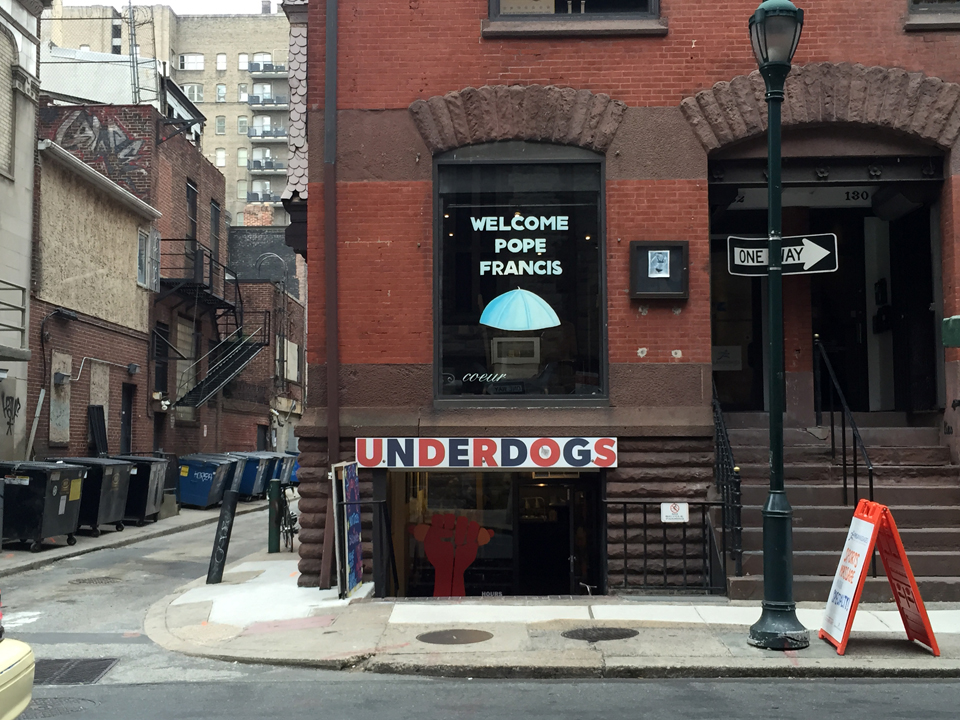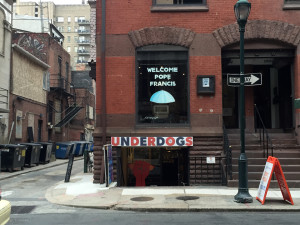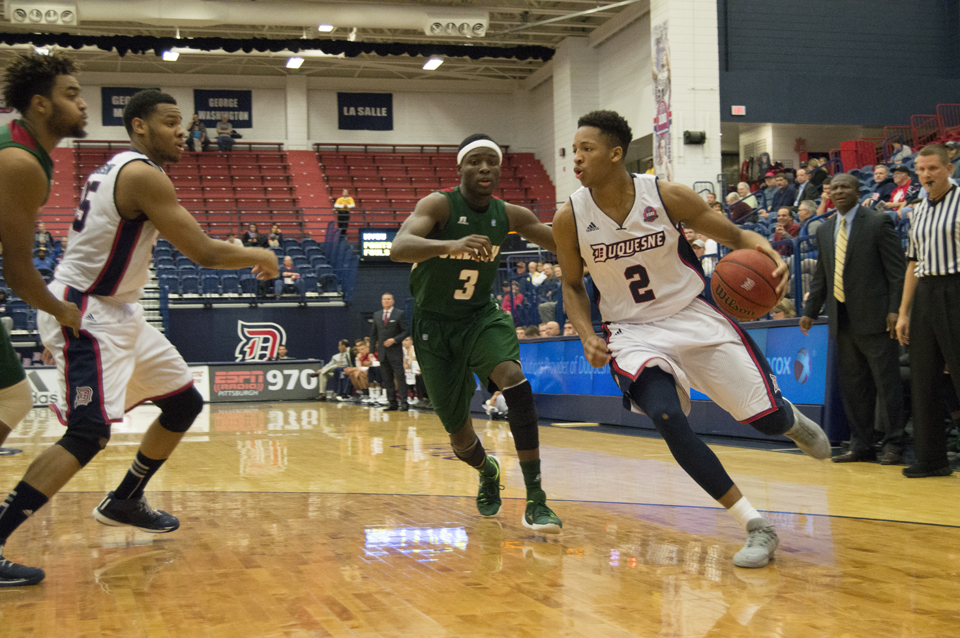

A window on 17th Street in Philadelphia is ready to greet the influential Catholic leader. Pope Francis is visiting the city as part of a six day trip to the U.S.
By Carolyn Conte | The Duquesne Duke
Almost 40 Duquesne students and faculty have joined the more than one million pilgrims awaiting the arrival of Pope Francis in Philadelphia for his two-day visit to Pennsylvania.
Pope Francis arrived in Washington D.C. on Sept. 22 as part of a week-long visit to the United States, becoming the third pontiff to visit the capitol city. He next flew to New York City, where he will address the U.N. General Assembly on Thursday, before continuing on to Philadelphia.
As the spiritual leader of the Catholic Church, Pope Francis carries enormous political and social influence around the world, according to political science and theology professors at Duquesne. The Pew Research Center reports that half of all Christians, or 16 percent of the world’s total population, are Catholic.
Six journalism students from Duquesne, led by former adjunct journalism professor Mike Clark, are following the pope to make a documentary about his visit.
One of the students, senior Kylie McCracken, said, “We are planning on telling people’s stories, his influence there on the Catholic community.”
Knights of Columbus member and pharmacy student Matt Broeren also traveled with the Duquesne group.
Broeren said he admires the pope for his political stances that unite social issues, such as love for the poor, and traditional family values.
According to Broeren, Pope Francis sets a good example of how American Catholics can bridge the gap between Republicans and Democrats.
“I feel like now the realm of politics is becoming much more accessible for a lot of United States Catholics,” Broeren said.
Pope Francis has not been shy about addressing social and political issues since taking office in 2013.
In May of this year, he took a stance on climate change that condemned pollution. In 2013, he made the comment “Who am I to judge” in response to a question about gay priests, which caused a stir among more conservative Christians.
He has advocated for remedies to income inequality and, most recently, asked that every church in Europe house a refugee.
Pope Francis had a private meeting with the president and addressed the U.S. Congress. Duquesne political science professor John Hanley said he does not think the pontiff’s meeting with the president carries much political weight.
“His two main areas of influence are going to be the public and congress,” Hanley said. “I think the Catholic population — particularly among younger people — can move public opinion and change the emphasis. Among any actor … younger people have the most potential [to change opinions], which declines over generations.”
Rev. Jean Michelle Gelmetti, a Spiritan priest at Duquesne, said Pope Francis has the potential to energize youth.
“The Church [in America] is more lively and youthful,” Gelmetti said.
Even non-Catholic Duquesne students, such as Julia Marn, are excited about the pope’s visit and message. Marn is a member of Duquesne’s nondenominational Crossroad Christian Fellowship.
“I think the mission to promote peace and equality benefits everybody,” she said.
Marinus Iwuchukwu, assistant theology professor, said the Pope is respected all over the world.
“He is a global leader, his voice is respected,” Iwuchukwu said.



